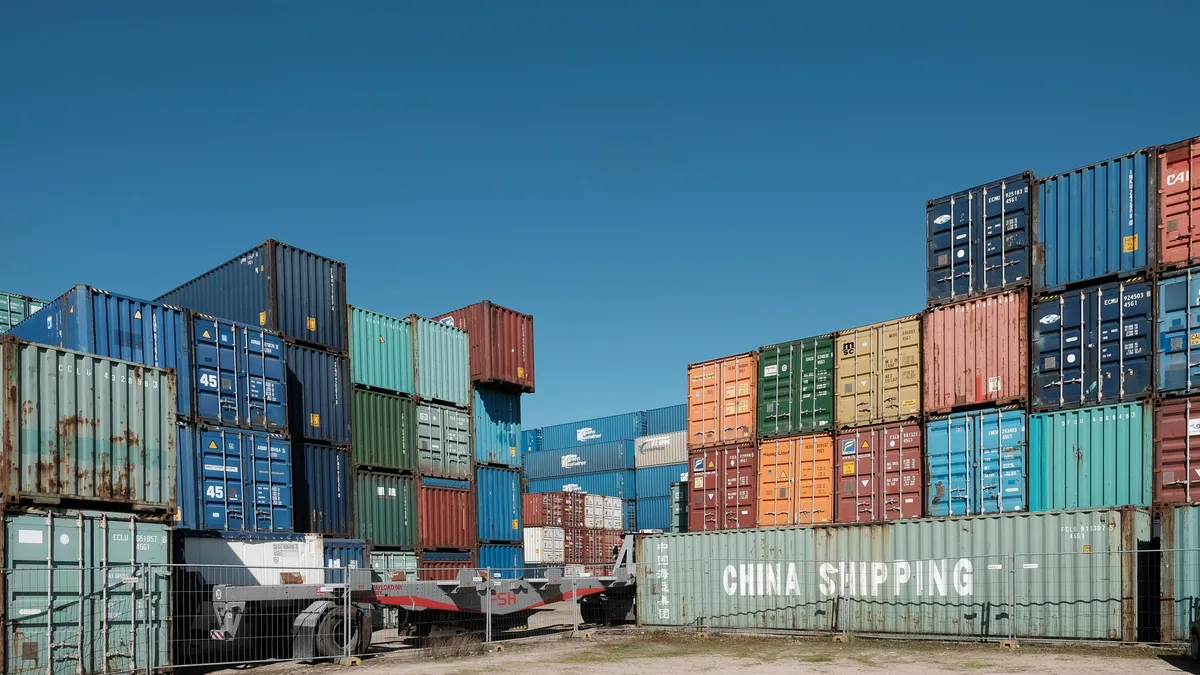Dive Brief:
- New data from the U.S. International Trade Commission and U.S. Census Bureau show overall mixed paper exports from the U.S. were down 39% in January YoY. Mixed paper exports from the U.S. to China were down by nearly 95%. The Institute of Scrap Recycling Industries (ISRI) estimates about half of that material has found new markets, according to Recycling International.
- In the short term, the country's ban on select commodities and overall tightening of import licenses has left some Chinese paper mills without enough supply to meet their needs. According to the China Press Association, as shared by Eco-Business, all of this has even led to concerns about paper shortages among various Communist Party publishers.
- Though near-term disruption hasn't altered the government's agenda. The country's customs authority recently announced a 10-month "Blue Sky 2018" campaign that has already led to multiple enforcement actions, according to letsrecycle.com. The head of China's Ministry of Ecological Environment (formerly the Ministry of Environmental Protection) recently indicated no plans to change course, according to The Straits Times.
Dive Insight:
The Jan. 2018 data also showed double digit percentage drops for U.S. exports of PET, HDPE, LLDPE, LDPE, PVC, polystyrene and mixed plastics to all countries. This export drop-off for certain commodities tracks with 2017 analysis recently released by ISRI and reports from recyclers throughout the U.S. While some recent expected movement on recovered paper import licenses may drive up numbers heading into the year, no one in the industry believes the dust has settled yet.
Publicly traded companies are projecting financial headwinds for at least the next six months, some local governments are still renegotiating contract terms, and interest has increased for domestic solutions. This has prompted many new conversations about the most foundational aspects of recycling itself — such as single-stream collection and pricing structures.
All of this has resulted in a range of outcomes for recyclable material depending on current economics and regional regulations. Relatively small amounts of disposal waivers have been approved in states that require them, such as Oregon and Massachusetts. Unknown amounts of disposal has been occurring in states that don't. Some in the industry are heartened by the chance to see more domestic processing activity, and that is happening, though a certain level of exporting is still expected.
China's new environmental initiatives have been lauded by industry leaders — after they adjusted to last July's surprise announcement — but those sentiments haven't fully translated to the developing markets that may take its place. Companies such as Waste Management say their goal is to create clean material for any customer, regardless of its destination, and not to view other countries as a "dumping ground."
While no one country can fulfill China's scrap demand, that doesn't mean they can't all take a piece. Tracking the political climate and environmental conversations in each of those countries, with the hope of avoiding new import ban situations in the future, will become increasingly complicated in this new reality.















